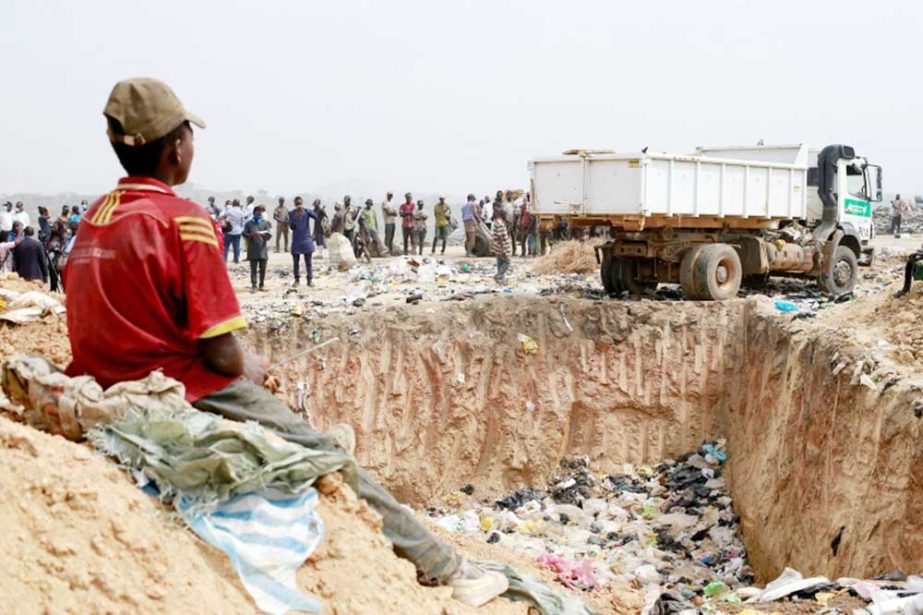
Oyeronke Oyebanji :
This needs to be urgently addressed by governments and pharmaceutical
companies.
Since the Omicron variant of COVID-19 was detected, the stark global inequities that have characterised this pandemic have once again come to the forefront. From discriminatory travel bans to limited access to vaccines, African countries are bearing the burden of this inequity.
Almost one year after vaccine rollout began, donations of COVID-19 vaccine doses by wealthy countries that no longer need them are getting ramped up. But many of the donations are due to expire shortly. This leaves African countries to reluctantly reject these much-needed vaccines or try to increase vaccine uptake rapidly, despite the challenges that may entail and the pressure it puts on healthcare systems that are already stretched to the limit.
The African Union, through its African Vaccine Acquisition Trust (AVAT), and the World Health Organization, through its COVAX scheme, have coordinated the procurement and delivery of the majority of vaccines in African countries. In late November, they published a joint statement highlighting that most of the donated vaccines are being provided with short shelf life and little notice.
Barely two weeks after this statement, the government of Nigeria announced that the country had to burn an unspecified number of doses that had expired. This is despite the fact that only about four million people in Nigeria’s vast population of 200 million are fully vaccinated. This challenge is not unique to Nigeria. Malawi and South Sudan have also had to destroy expired COVID-19 vaccine doses. Richer countries like the United Kingdom, the United States and Canada have also reported destroying out-of-date vaccines.
Apart from the economic cost of destroying vaccines which could go up to millions of dollars, there is a ripple effect on vaccine confidence. There are increasing concerns being expressed in Nigeria about getting vaccines that are expired and assumed less effective – a concern Nigerian Health Minister Osagie Ehanire has had to address publicly. With low rates of COVID-19 vaccination, inequity in access to doses, risk of emerging variants and more, the challenge of short shelf life doses must be treated as an emergency, and all possible solutions explored.
The responsibility to solve this problem lies with different groups, including countries donating doses, vaccine manufacturers, vaccine delivery mechanisms such as COVAX, national health authorities, community leaders and individuals.
Within one week of the detection of the Omicron variant, several vaccine manufacturers published statements about their capacity to develop vaccines to respond to this new variant. While this is welcome, I would urge them to direct a fraction of their research and development efforts towards generating the evidence and stability data that can be used to extend the shelf life of vaccine doses. By doing this, vaccines can be shipped with additional buffer time to cover a range of logistical and practical challenges – and ultimately allow more people to be vaccinated.
A further urgent step that manufacturers should take is to provide greater visibility on when supplies will be available. This could help COVAX and AVAT, as well as national governments and health agencies, with planning. For example, by telling Nigeria that they would receive one million doses in the next six months, manufacturers can give the country sufficient lead time to introduce a campaign focused on the uptake for a specific volume. There are more than enough people in Nigeria for the current level of supply.
Vaccine delivery mechanisms, such as COVAX and AVAT, also have an important role to play, as they serve as middlemen between donors and vaccine manufacturers, and recipient countries. Both COVAX and AVAT have introduced a requirement that doses have a minimum shelf life of 10 weeks in order to be accepted for donation. This could push manufacturers and donors to work with countries for better planning and prioritise early delivery of doses.
National health authorities must also continue to find new ways to encourage and support the uptake of COVID-19 vaccination. The Nigerian government has recently started ranking different states’ performance as part of a national mass vaccination campaign. But Nigeria must also leverage scientific capacity in making decisions. For example, there is evidence that vaccinated children can also help to stop the spread of COVID-19. Yet, Nigeria has not made vaccines available to individuals below the age of 18. Rather than destroying doses, expanding the age limit of those who can safely receive these vaccines can make better use of resources.
Finally, community leadership is essential to building confidence. A meeting held in Abuja with military chaplains and imams has resulted in increased numbers of barrack residents visiting vaccination sites in the Federal Capital Territory. Churches and mosques, workplaces and even managers of shopping malls can work with the National Primary Health Care Development Agency to organise mobile and pop-up vaccination clinics. The health authorities in Nigeria should also appeal to the country’s young population by engaging celebrity champions to promote vaccination.
Sadly, the destruction of expired COVID-19 vaccine doses could reverse months of hard work in getting vaccine supplies into countries like Nigeria. Rather than trading blame, we should strive for collective action to solve this challenge – and it must start now.
(The views expressed in this article are the author’s own and do not necessarily reflect Al Jazeera’s
editorial stance.)

